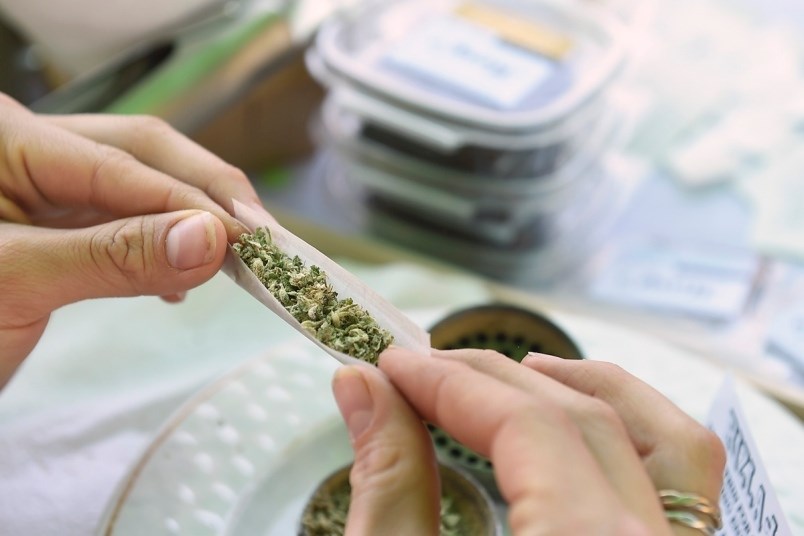While new provincial cannabis legislation was tabled in the legislature today, the legal framework the B.C. government operates under will change time and again based on how Ottawa navigates incoming variables such as policing, pricing and edibles.
Thursday’s announcement confirmed many of the details the province unveiled in early February and was packaged around five key points: health and safety; mitigating availability to those under the age of 19; economic development; road safety and keeping weed out of the hands of organized crime.
The first retail outlet selling non-medical cannabis is expected to be open by the end of summer, though no details around locations were released.
“This is a major, significant change in public policy, not just here in B.C. but right across the country,” said Minister of Public Safety and Solicitor General Mike Farnworth.
The previously announced highlights include 19 as the provincial minimum age to purchase, sell or consume cannabis; a 30-gram possession limit; no smoking near schools, playgrounds sports fields or places where youth may be present and no usage in vehicles or near schools.
The regulations are packaged across three bills tabled Thursday.
The proposed Cannabis Distribution Act gives the province sole jurisdiction over wholesale distribution of cannabis and the authority for public retail sales.
The proposed Cannabis Control and Licensing Act aims to give the province control over the sale, supply and possession of pot and sets out the licensing framework for private retailers. The act also covers associated penalties, which range massively: fines from $2,000 to $100,000, imprisonment of three to 12 months, or both.
Amendments to the Motor Vehicle Act will give police more training and tools to remove those under the influence of cannabis off the road and issue road-side suspensions.
What those tools and training may look like need to be addressed immediately, according to Farnworth.
“It’s something that we believe needs to be communicated to the provinces asap,” Farnworth said. “The feds have told us there is technology they are confident in but we still have yet to know exactly what it is.”
Retail operations will first require approval from local governments before applying to the province for a licence. Background checks will then be conducted looking into those associated with a business specifically to root out organized crime. If those licences are approved, retailers will have to buy product from the provincially-run distribution system. Retailers won’t be able to apply for licences until Thursday’s bills are approved.
An agency being created through Farnworth’s ministry will handle enforcement in tandem with local police where necessary. Those employees will operate similarly to liquor inspectors and focus their efforts on retailers operating without a licence.
Existing dispensaries will have to apply for a retail licence in the same way new businesses will, and their previous operation will have little bearing on that process. Those with minor marijuana offences in the past will not be exempted for applying for a retail licenses.
“Certainly a serious criminal offence such as trafficking for example, would obviously get you ruled out,” Farnworth said.
Only marijuana buds and oils will be sold, and Farnworth said federal regulations around edibles or other extracts won’t be known for at least a year.
The Port Coquitlam MLA said federal legislation will likely be finalized by June 7, though that timeline could be extended if amendments are proposed. Once the bill passes, an eight to 12-week timeframe will likely pass before outlets are up and running.
Between now and then, a handful of provincial ministries are examining price points and the amount of PST that will be applied.
“We’ve also learned from other jurisdictions that if the tax rate is too high you just drive people to the black market,” he said.
@JohnKurucz



